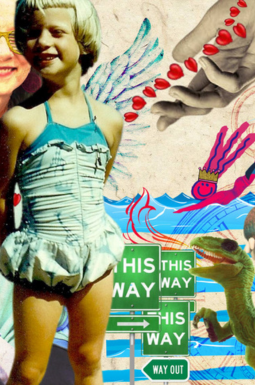Decolonizing Reading Club: White Supremacy Culture – Still Here
In January 2021, LWF and the Lake Winnipeg Indigenous Collective (LWIC) collaboratively created a reading club to grow our teams’ understanding of Indigenous perspectives and experiences, truth and reconciliation, treaty obligations, and the history and legacy of colonization. Through group discussions on shared readings, this reading club genuinely created a brave space for personal and professional learning and reflection that hadn’t been possible in other workshops and trainings.
White Supremacy Culture – Still Here
by Tema Okun

Our book club recently read and discussed the article White Supremacy Culture – Still Here, written by Tema Okun with contributions from many of her colleagues. This document is an update and expansion of her original 1999 article White Supremacy Culture.
The article describes white supremacy culture as a project of social conditioning that leads us to blindly accept and contribute to colonization, oppression and capitalism. The article also highlights for us the characteristics of white supremacy culture and how these characteristics might show up in our workplaces, organizations and other social settings. Okun then provides antidotes to these characteristics, giving us some tools and thoughts to help break us out of this mindset and consider other alternatives. A couple of characteristics that really resonated with me were perfectionism and fear of open conflict, which I realize are two characteristics that I have internalized my whole life.
As a Black woman of mixed origin, this article really opened my eyes and showed me that I am a product of white supremacy culture. While I thought I was breaking racial stereotypes by being a well-mannered, well-spoken, well-dressed and well-educated Black woman, I was really just participating and being complicit in white supremacy culture. As naive as this might have been, I thought that by conforming to this societal standard of success, I as a Black person would be seen as equal. Even after hearing discussions about racism as a systemic issue, I still subconsciously was hopeful that if other Black people could just be well-spoken and polite, then there would be no reason for us to be subjected to racism.
But that is no way to live and this way of thinking is heavily influenced by the characteristics of white supremacy culture. We should not have to be censored, agreeable versions of ourselves in order to be seen as equal. Yet this is what white supremacy culture aims to achieve, leading us to believe that by succumbing to these societal standards, we will eventually be seen as equal. In reality, conforming to these characteristics is a tool used to take power away from us and further perpetuate a culture of inequality.
While this realization was shocking, saddening and earth shattering to me, I am not angry or upset at myself for unknowingly participating in this oppressive culture. All I can do now is work to dismantle my biases and former ways of thinking. I am also working on being bold enough to question and challenge the social constructs that we are living in and to think outside the box about how our futures as Black men and women could be brighter. I think this quote from the article really encapsulates this:
“We are not victims; our history is both witness to and record of how many of us refuse(d) to cooperate, how many of us are brave and bold enough to vision a future we often do not live to see.”
By: Claire Harvey, LWF Program Coordinator
Want to read more?
Staff reflections on other readings can be found on our Decolonizing Reading Club web page.